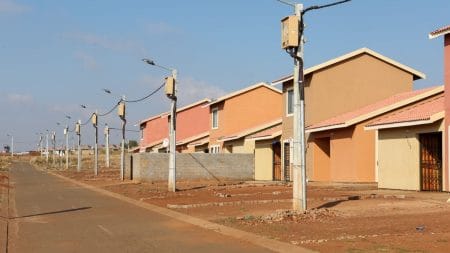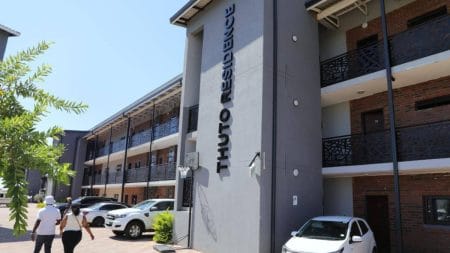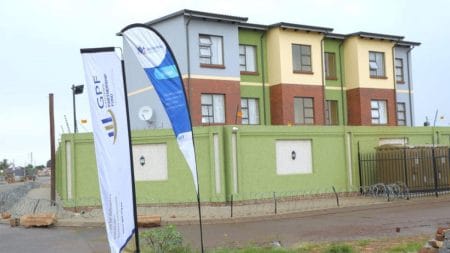The Gauteng Housing Department has issued an important public notice regarding the sale of RDP houses. This notice outlines the rules that beneficiaries must follow when selling their RDP homes, as well as the implications of these sales on housing stability within the province.
As the department seeks to ensure that RDP houses are used appropriately, beneficiaries should be aware of the regulations and their rights when it comes to selling their homes.
Why This Notice Is Important
The Gauteng Housing Department’s public notice aims to protect the integrity of the RDP programme by ensuring that houses are used for their intended purpose: to provide stable housing for low-income individuals and families. The department is committed to ensuring that RDP homes do not end up in the hands of private investors or individuals who do not meet the criteria for affordable housing.
This notice serves as an important reminder to all beneficiaries of RDP houses to be aware of their rights and responsibilities under the terms of their title deed. Selling these homes should not be done impulsively, and beneficiaries must be clear about the rules set out by the Gauteng Housing Department.
Key Information on the Sale of RDP Houses
Eligibility to Sell RDP Houses:
The Gauteng Housing Department has set clear guidelines regarding the sale of RDP houses. Beneficiaries are only allowed to sell their RDP house after a period of 8 years from receiving the title deed. This rule is in place to ensure that the homes remain with those who need them most during the first few years.
Beneficiaries must wait for the title deed to be fully issued and then observe the 8-year period before they are legally allowed to sell the property.
Pre-Emptive Clause in the Title Deed:
One of the most significant factors in the sale of an RDP house is the pre-emptive clause included in the title deed. According to this clause, the Gauteng Housing Department has the right of first refusal when it comes to purchasing the house back from the beneficiary once the 8-year period has passed.
If the beneficiary decides to sell the house, the department will be the first to have the option to buy the property. This ensures that RDP homes are not sold to private investors but remain accessible to those in need of affordable housing.
The Department’s Position on Selling RDP Homes:
The Gauteng Housing Department does not encourage the sale of RDP houses. The purpose of the RDP programme is to provide stable, affordable housing for low-income South Africans, and selling these houses undermines the program’s goals.
The department’s stance is that these homes should be used for their intended purpose — providing secure, long-term housing for families who cannot afford market-rate homes. Selling the property could lead to instability for families who are in need of affordable housing, as well as creating opportunities for exploitation by non-beneficiaries.
What Happens After 8 Years?
After the 8-year period, beneficiaries may choose to sell their RDP houses. However, they are required to offer the house to the Gauteng Housing Department first, due to the pre-emptive clause.
If the department chooses not to buy the house, the beneficiary is allowed to proceed with selling it on the open market, but only in compliance with the legal requirements set out in the title deed.
Financial and Social Implications:
Selling an RDP house can have serious consequences, not just for the beneficiary, but for the community as well. If sold to individuals who are not low-income families, it may create social instability.
Beneficiaries should carefully consider the financial implications of selling the house. While it may seem like a financial gain, the process may involve negotiations with the Gauteng Housing Department and could end up being less profitable than expected.
Learn more: How to Legally Transfer Your RDP House into Your Name
How to Sell Your RDP House via the Gauteng Housing Department
If you are a beneficiary and wish to sell your RDP house after the 8-year waiting period, here’s what you need to do:
Review Your Title Deed:
The title deed outlines the rules for selling your house, including the pre-emptive clause. Make sure you understand the conditions before moving forward.
Contact the Gauteng Housing Department:
Before listing your home for sale, contact the Gauteng Housing Department to inquire about your options and the department’s right to purchase the house back from you.
Weigh the Long-Term Impact:
Consider whether selling your RDP house is in your best interest. Selling the house could impact the stability of your housing situation, and it’s important to evaluate all available options.
Learn more: Eligibility Requirements for RDP Housing in Gauteng
RDP Housing FAQs
If you’re a beneficiary of an RDP house or are considering applying for one, understanding the rules and responsibilities is crucial.
Q: What rights do I have with an RDP house, and what must I do as an owner?
A: As an RDP beneficiary, you have the right to:
Occupy the house as your primary home and eventually own it legally (once the title deed is transferred).
Receive basic municipal services like water, sanitation, and electricity, just like other homeowners.
However, you must:
Maintain and repair the house yourself (e.g., fix leaks, paint walls).
Keep the property in good condition and use it only as your primary residence.
Pay for utilities and any property rates/charges when billed by the municipality.
Not sell or rent the house illegally. The law strictly limits resale or leasing of RDP homes.
Failure to meet these conditions can lead to loss of your subsidy rights.
Q: Who is responsible for maintenance of my RDP house, and what services does the municipality provide?
A:
Homeowner’s responsibility: You are responsible for maintaining and repairing the house itself (e.g., plumbing, minor structural fixes, wear and tear).
Municipality’s responsibility: The local municipality handles broader infrastructure like:
Roads
Water and sewer connections
Electricity grids
Street lights
Refuse removal
As a beneficiary, you should register for municipal accounts and pay for water, electricity, and other services you use. Some municipalities offer indigent relief (e.g., rebates on property rates, free electricity, and water), so be sure to check if you qualify.
Q: Do I immediately own the house, and when do I get the title deed?
A:
Initially, you move into the house as the beneficiary, but the government holds the title deed for the first 8 years.
After 8 years, the Deeds Office will issue the title deed in your name, making you the legal owner.
During this time, the house is considered state-owned, and you cannot sell or transfer ownership.
You can prove your right to the house through subsidy approval and handover documents. The title deed is issued only after the 8-year occupancy period.
Q: Can I sell my RDP house?
A:
Not within the first 8 years of ownership. By law, you cannot sell or transfer a state-subsidised house during the first 8 years.
After the 8 years, you must first offer the property back to the housing department (Provincial Human Settlements).
The department has the first option to buy the house (often for no payment), after which they may reallocate it.
Only if the department waives its buy-back option will you be allowed to sell the house to someone else, and you must use an official conveyancer.
Important: You must have the title deed to sell or transfer ownership.
Q: Can I rent out my RDP house?
A:
No, renting out your RDP house is prohibited. The Housing Act explicitly forbids beneficiaries from leasing the house to others.
Renting out your RDP home could result in eviction, as the subsidy is intended for owner-occupation only.
If you no longer need the house and wish to move, you must follow official procedures, such as offering it back to the housing department, not renting it out.
Q: What happens if I violate these rules?
A:
Selling or renting your RDP house illegally can lead to legal action. Municipalities can cancel your title deed or evict tenants.
Beneficiaries caught in illegal transactions may be required to return the house to the state and could face criminal charges for fraud under the Housing Act.
Always use a conveyancer and obtain written permission from the housing department if you plan to sell or lease the property.
The Gauteng Housing Department has made it clear that while beneficiaries are allowed to sell their RDP houses after the 8-year waiting period, the department must be given the first option to buy the property back. Beneficiaries should fully understand the legal requirements outlined in the title deed before deciding to sell their house.
The Gauteng Housing Department continues to prioritize the fair distribution of housing resources to ensure that RDP homes go to those who need them the most.










